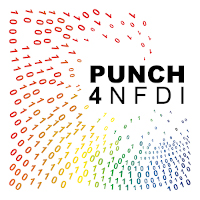Speaker
Description
The detection of radio signals originating from pulsars poses a formidable challenge, mainly due to the omnipresent terrestrial and extraterrestrial radio interference. In view of the upcoming Square Kilometre Array Observatory (SKAO) with its huge data streams, the interfering signals have to be identified in real time already during the data acquisition phase. For this reason, we have developed the ML-based Pipeline for Pulsar Analysis (ML-PPA) with an overall architecture that addresses real-time and Big Data requirements.
In the initial phase, we employ an innovative in-silico method to generate artificial radio pulsar signals. These synthetic signals serve as the foundation for training a UNet-based and a CNN-based neural network, specially crafted to perform precise segmentation of pulsar signals from the surrounding terrestrial radio interferences. A parallel effort is also executed to convert the python package into an efficient C++ code backend and containerized for better scalability. This segmentation process is critical, as it enables us to isolate and classify the signals of interest in a noisy environment.
Following successful segmentation, we implement a comprehensive machine learning pipeline. This pipeline leverages a range of techniques to classify and categorize the segmented signals, providing valuable insights into the nature of the detected pulsar emissions. This classification step is instrumental in understanding the diversity of pulsar signals and their potential sources.
Our proposed pipeline represents a significant advancement in the realm of pulsar signal analysis. By combining synthetic signal generation, neural network segmentation, and machine learning classification, we offer a solution for extracting and characterizing pulsar signals amidst challenging radio noise scenarios. This approach promises to enhance our ability to uncover and understand the pulsar phenomena along with other enigmatic astronomical signals, contributing to the broader field of astrophysical research.
In the talk, an overview of the very first version 0.1 of the framework ML-PPA is given
| Type of submission | Talk |
|---|

